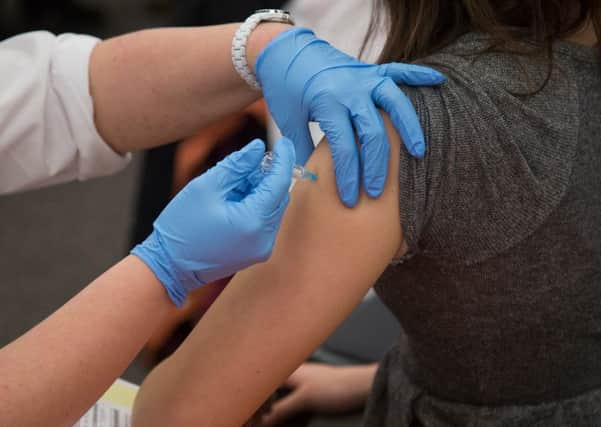Blackpool Victoria Hospital fridge blunder over jabs


The blunder, described by health bosses as a ‘serious untoward incident’, affected almost 230 patients across the Fylde coast and sparked an internal investigation at Blackpool Victoria Hospital.
The vaccines were all given between April 1, 2014, and May 1, 2016, for hepatitis B, a major cause of serious liver disease, and tetanus, which can be deadly if left untreated.
Advertisement
Hide AdAdvertisement
Hide AdThose given suspected duff doses have now been sent letters inviting them for a fresh jab, while hospital bosses say they have brought in new measures to stop a similar event happening again.


But Blackpool North and Cleveleys MP Paul Maynard said: “I’m sure patients will be alarmed to hear of this lapse. Confidence in a vaccination system relies on the trust that medical professionals not only know what they are doing, but that they are also doing it in a safe way.
“Given that the fridge was not adequately maintained, I hope the trust reviews all other similar examples where a lapse in attention would have significant consequences.”
Fylde and Wyre Clinical Commissioning Group (CCG), which organises and pay for residents’ health care, said 39 patients were given one of the affected tetanus jabs, while 36 had hepatitis B vaccines.
Advertisement
Hide AdAdvertisement
Hide AdRepresentatives from the CCG attended meetings set up to discuss the error, while documents said ‘all systems and processes have been improved to ensure no repeat of this serious untoward incident’.


Meanwhile, Blackpool CCG said letters have been sent to 57 people in relation to the tetanus vaccines, and 96 in relation to hepatitis B. None have come to any harm, it said, and they have been offered fresh vaccines.
Hepatitis B vaccinations aren’t routinely available on the NHS, and it’s only offered to those thought to be at increased risk, including people who have been exposed to the virus through drugs, sex, blood transfusions, prison, or by other means.
Full protection involves three injections over four to six months, while five-year boosters are recommended for those at continued risk.
Advertisement
Hide AdAdvertisement
Hide AdTetanus jabs are given as part of the NHS childhood vaccination programme, and a total of five are required. Those travelling abroad should also be fully vaccinated to protect themselves against bacteria getting into the body through cuts or scrapes.
Medical expert and GP, Dr Tom Smith said: “The hospital won’t know whether the vaccines have worked or not without carrying out blood tests, but because they weren’t stored correctly they will have to offer them again.”
He said receiving a second dose would do no harm to patients, and said it could actually boost their immune systems.
He added: “I don’t know how much the vaccines cost but it will not be very much – in single figures each I would think. The cost is in the staffing and the administration really; just the time spent doing it.”
Advertisement
Hide AdAdvertisement
Hide AdEarlier this week, The Gazette put nine questions to Blackpool Teaching Hospitals NHS Foundation Trust, which runs the hospital.
It did not answer six of them, including how many patients were given the vaccines, how many vaccines were thrown away and what the cost of replacing them was, whether the fridge had developed a fault or had been set at the wrong temperature, and why it took two years to notice the problem.
In a statement attributed to a spokesperson, the trust said: “Following checks on the cold storage of a small number of vaccines in our emergency department, we were made aware that some vaccines may have been less effective than they should have been.
“We contacted all the patients who may have been affected, and assured them there is no risk of harm with receiving the potentially less effective vaccines.
Advertisement
Hide AdAdvertisement
Hide Ad“We also offered revaccinations and advice to those individuals identified. We would like to assure patients that steps have been taken to ensure this does not happen again, with an action plan put in place to strengthen our processes. The lessons learned from the incident were shared widely among staff.
“A new refrigeration system has been installed, which is connected to the trust network and digitally records all fridge temperatures, and will automatically send an alert should there be a change of temperatures outside of the agreed parameters.”